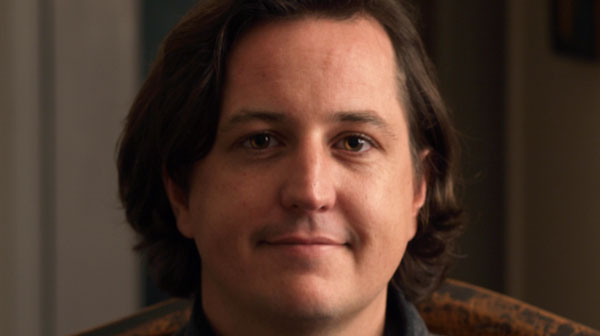About us
Bring balance to your body
What we do
Oriental Medicine addresses dysfunction by increasing vitality and bringing balance to the organs and energy of the body. By adjusting the body towards balance with acupuncture needles and herbs, we can affect a great many diseases in a positive way, and quite often the results are profound.

Acupuncture works
Our clients have repeatedly witnessed the healing power of acupuncture and Chinese Herbal Medicine. Basically, acupuncture just works. Obviously, most people are now aware of acupuncture treatment for things like pain and stress, but it can be powerfully effective for serious illnesses. Often, the mysterious illnesses that western treatment has a difficult time classifying are effectively managed with Oriental Medicine. For most of the people we see, acupuncture brings relief from their symptoms and in many cases brings about a full resolution.
Oriental Medicine is an invaluable tool on the path towards true vitality. Acupuncture and Chinese Herbal Medicine trigger the body to change, and with that change a greater sense of ease and happiness becomes present.

Frequently Asked Questions
Most people barely feel a thing when needles are inserted. Some people feel a slight pinch, and others ask “Is it in yet?” The reason acupuncture needles don’t give the painful sensation you might expect is because they’re very, very thin in comparison to the hypodermic needles used to give injections. Hypodermic needles are necessarily hollow so that the shot can be injected. They also have a very blunt point (actually a wedge shape) in comparison to an acupuncture needle. Forty acupuncture needles can fit into the tip of one standard 18 gauge hypodermic needle.
There are certain sensations associated with the therapeutic effects of acupuncture, which are known as de qi (pronounced “day-chee”). These may include slight cramping, heaviness, distention, tingling or electric sensation traveling along a meridian. If any discomfort is experienced, it is usually mild.
Acupuncture needles are extremely safe, because they are pre-sterilized, individually packaged, and disposable. Every practitioner gets extensive training in anatomy so as to avoid accidentally inserting a needle in a place that can cause damage.
Acupuncture and herbs work whether you believe in them or not. Good results are seen in the majority of cases. When all other treatment methods have failed, this indicates a systematic imbalance – exactly what acupuncture and herbs excel at treating.
During your first office visit, we spend a lot of time getting a complete picture of your health and lifestyle. We examine the condition of your tongue (is it cracked, coated, excessively pink, etc.), and check your pulse on both wrists (the quality of your pulse gives information about possible imbalances). We’ll also ask questions about your emotional state, and specific symptoms you may have.
This is done because, unlike Western Medicine, we treat the whole person instead of focusing on the symptoms of your condition. The first visit can last from an hour to an hour and a half, and end with an acupuncture treatment lasting another 30-60 minutes.
Your subsequent visits will be much faster – usually an hour long. We’ll make a short review of your progress followed by an acupuncture treatment.
Typically acupuncture treatments are given once a week. If the condition is acute and painful, treatments may be given 2-3 times per week until the condition starts to come under control. The exact duration of treatment depends on the condition, your basic level of health, and how well you respond to acupuncture.
In Chinese medical theory, acupuncture works by balancing the body’s Qi. Qi can be described as a form of bioenergy that runs along 12 major meridians. If Qi gets blocked, it shows up as an imbalance or illness. Basically, if you have a health condition, some part of your body’s system is out of whack. Chinese medical theory allows us to diagnose the imbalance… and balance it.
In Western medical theory, acupuncture appears to work by stimulating parts of the brain. It also stimulates the body to release natural biomolecules such as neurotransmitters, vasodilators, and hormones. The exact mechanisms which bring this about are unknown, but the effects are measurable.
A good example of this is the use of acupuncture to induce labor. One of the first things that Oriental medical students learn is that there are a few points that are absolutely forbidden to use with pregnant women. These points cause the release of oxytocin, which is the hormone that naturally induces labor. Studies have shown that using acupuncture to induce labor reduces the active (painful) phase of labor by an average of 3.6 hours.
Meet Coleman
Licensed Acupuncturist
Coleman McMurphy, owner of the Morningside Clinic, is licensed by the Texas State Board of Medical Examiners as an acupuncturist and has obtained the highest certification possible, Master of Oriental Medicine. He received his masters from the Academy of Oriental Medicine in Austin.
He is a husband and the father of twin boys, Ethan and August. Coleman is committed to bringing the finest acupuncture to the Dallas area and is encouraged daily by the positive healing effects that Chinese Medicine brings to his clients.

Continuing education
- 2002-2005: Completed C1-c4 craniosacral classes with Hugh Milne
- 2003-2004: Completed yearlong training in Toyo Hari style japanese acupuncture
- 2003-2005: annual weekend training with Mazakazu Ikeda Sensei in Traditional Japanese Acupuncture
- 2003-2005: Completed 4 workshops with Anryu Iwashina Sensei (Dr. Bear) in 5 element based Toyo Hari Acupuncture
- 2004-2006: Completed 2 years training with Koei Kuwahara Sensei in Hari style japanese acupuncture
- 2006: Hosted weekend training in Austin for Junji Mitzutani Sensei teaching Traditional Japanese Moxibustion
- 2009: Completed yearlong training with Susan Johnson L.Ac. in Master Tung’s Acupuncture
- 2006-Present: Continuing to learn the school of life as taught by my two children, Ethan and August
